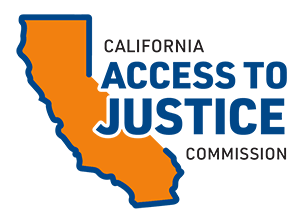Supreme Court Rules For Access To Justice When Dependency Counsel Fails To Timely File Notice Of Appeal: In Re A.R., A Person Coming Under The Juvenile Court Law
On April 5, 2021, California Supreme Court issued a decision in In re A.R., a Person Coming Under the Juvenile Court Law, a case in which the Access Commission’s Amicus Curiae Committee filed a friend-of-the court brief promoting access to justice in dependency cases. The California Supreme Court ruled that a parent seeking to challenge an order terminating her parental rights, but whose lawyer did not timely file the notice of appeal, may seek relief through a petition to the court of appeal for a writ of habeas corpus predicated upon ineffective assistance of counsel. The High Court held the required showing is limited to demonstrating (1) that the parent provided timely instructions to counsel to appeal, failure to follow through on which was a prima facie showing of ineffective assistance, and (2) that the petitioner was diligent in seeking redress. The Court recognized that while prompt resolution of long-term placement is a critical interest to dependency children, children and parents alike have an interest in ensuring that the parent-child relationship is not erroneously abridged. The Court disapproved other authorities that question use of habeas in this manner.
In this case, the mother promptly instructed her court-appointed lawyer to file the appeal, but the lawyer mistakenly filed the notice of appeal four days late. The Court rejected the argument that the mother was required to also demonstrate a reasonable likelihood of prevailing on the appeal to establish prejudice as in a typical ineffective assistance case: “For a parent whose attorney has incompetently failed to file a timely appeal, the relevant injury is not denial of any specific substantive appellate victory; it is the opportunity to appeal at all.” (Slip. Opn., p. 15.)
In rejecting the Social Services Agency’s and the minor’s ad litem counsel’s contrary arguments, the Court explained:
“We emphatically agree that dependent children have a critical interest in avoiding unnecessary delays to their longterm placement. But it does not follow that parents must automatically lose the ability to seek redress for incompetent representation as soon as the time for filing the notice of appeal has passed. Certainly nothing in the statute says so. While the statute makes an order terminating parental rights “conclusive and binding,” it does so expressly subject to the parent’s right of appeal.” (Slip. Opn., pp. 10-11.)
In terms of process, the Court held that a habeas corpus petition, filed directly to the court of appeal provided the most expeditious means of addressing the issue, in lieu of the mother’s request for an expansion of the constructive-filing doctrine (typically associated with appeals by incarcerated parties who timely deliver they request to appeal to the prison officials). The Court reasoned that a habeas corpus petition allows the petitioner to present of evidence beyond the appellate record, and gives courts broad discretion to fashion appropriate remedies. The Court agreed with the mother however, that strict adherence to the procedural rules applicable to criminal habeas petitions are neither necessary nor appropriate to these petitions, and essentially urged the courts to resolve these cases expeditiously.
The Access Commission’s Amicus Curiae Committee’s friend-of-the-court brief in October 2020 supported a mother’s right to have her appeal heard on the merits arguing that the relationship between parent and child is too important for justice to be deemed served by denying an appeal from a parent’s termination order because of a procedural default that was not due to unreasonable conduct by the parent and that causes no more delay or prejudice to the child or third parties than would result from a timely appeal. The opinion can be found here.
If you have an amicus request, please email info@CalATJ.org and we will pass the request along to the Amicus Committee.
